UK Security Minister Voices Support For Threatened Persian Broadcaster
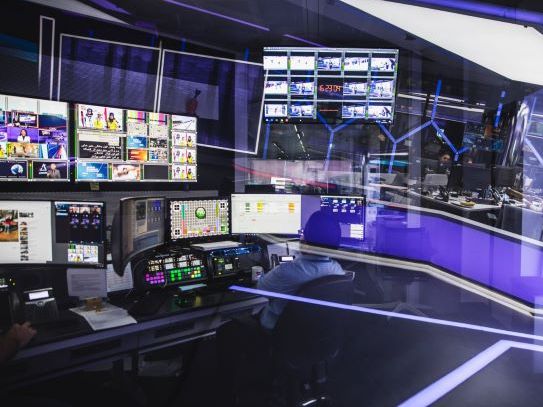
UK Security Minister Tom Tugendhat says the Iranian regime’s threats to assassinate UK-based journalists and harm their families are beyond contempt.

UK Security Minister Tom Tugendhat says the Iranian regime’s threats to assassinate UK-based journalists and harm their families are beyond contempt.
One day after Iran International announced that it is transferring its live broadcasting to its Washington DC office on the advice of the UK anti-terrorism police, Tugendhat expressed support for the network in a tweet Sunday evening.
“Their efforts to silence Iran International TV are a direct attack on our freedoms and an attempt to undermine our sovereignty. They will not succeed,” the minister said.
He went on to say that anti-terrorism police have given Iran International “exceptional support, including armed officers at their London studio.”
However, he explained that “Due to the severity of the threat they advised them to move to a more secure site in the UK. Until the new site's ready they'll broadcast from their US studio.”
He added that the network is determined to carry on its mission and “they won’t be silenced by cowardly threats from a despotic regime.”
London’s Metropolitan Police warned Iran International in November of plots originating with the Islamic Republic to kill or kidnap their journalists working at the network’s London headquarters at Chiswick Park.
Iranian officials who want to blame ongoing popular protests on foreign influences, accuse the network of instigating unrest and have directly threatened revenge.
“Their courage is important to defending freedom. We'll continue providing them with every form of support to ensure that they can continue their work in safety from the UK,” Tugendhat said.
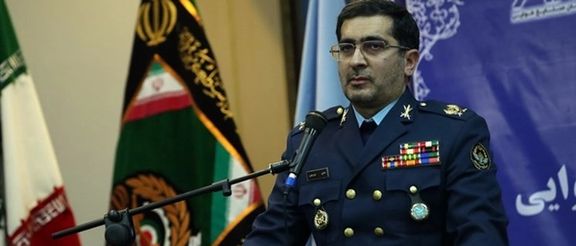
The Islamic Republic claims it does not need foreign-made parts from to produce military drones, despite many reports revealing the foreign origin of many parts of its UAVs.
Brigadier General Afshin Khajefard, the chief executive of the Iran Aviation Industries Organization (IAIO), said during a TV program on Saturday night that the country is self-sufficient in the production of drone and cruise missile engines.
"We have reached a level of self-sufficiency in the engine field that today we can produce 10 types of engines in the country, most of which are used on drones and cruise missiles," he said. “Of course, our defense industries have also reached self-sufficiency in designing and making heavy engines,” he noted.
He added that “We have various classes of missiles, precision-strike bombs, electronic warfare avionics and reconnaissance drones. However, we are trying to develop drones with civilian applications, because drones can be used for agriculture, mapping and firefighting."
He claimed that Iran is self-reliant in the field of overhauling commercial aircraft and manufacturing components in defiance of sanctions, adding that the Islamic Republic is also self-reliant in the building and overhaul of helicopters, and many of the country’s manufacturing is domestically made.
Iranian officials are known to make claims about military capabilities that cannot be independently verified.
Iran has developed a program of drones, or UAVs (unmanned aerial vehicles), given it lacks an effective air force due to international sanctions. While Iranian officials and commanders have celebrated this as an achievement of domestic production, Iran has often clandestinely acquired foreign-made parts.
Iran’s Shahed drones, in production since 2013, has been widely reported to have a Rotax 914 engine. A decade ago, there were reports that Iran had copied aspects of a US drone it had shot down.
Quebec-based Bombardier Recreational Products (BRP) expressed surprise that engines made by Rotax, its Austrian subsidiary, were reportedly found in Iranian-made drones shot down in Ukraine. The company’s logo has featured in photographs of drone wreckage. While Rotax engines are used in snowmobiles, watercraft and civilian airlines, they also figure in the United States MQ-1 Predator drone, Israel’s Heron drones, and some Russian drones. Drone output has surged in the Middle East in recent years, with the main producers Israel and Turkey.
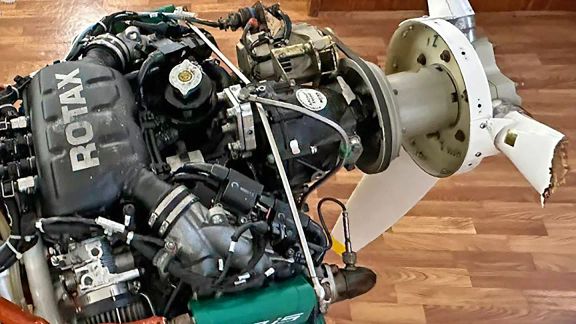
After a Rotax engine was apparently found in a Mohajar-6 drone shot down by Ukrainian forces and displayed on CNN in October, BRP stated October 21 it had not given authorization to distributors to “supply military UAV manufacturers in Iran or Russia.”
In January, the BRP, best known for water-skis and snowmobiles, said it has established through a “thorough investigation” set up three months ago that an engine found in a Mohajer-6 drone had not been sold directly to either Iran or Russia. Bombardier ended supplies of the engines to Iran in 2019, although the Mahtabal company in Tehran still markets itself as the official representative for Rotax engines. The date – 2019 – suggests this was a response to the United States 2018 introduction of ‘maximum pressure’ sanctions that threatened punitive action against third parties dealing with Iran. The engines, made primarily for recreational use, would not have been covered by a partial United Nations arms embargo on Iran that expired October in October 2020.
In early-February, dozens of US lawmakers wrote to President Joe Biden to express concerns about reports that Iranian-made drones recovered in Ukraine contain parts manufactured in the United States.
Later in the month, Axios quoted two EU officials as saying that the European Union is expected to impose sanctions on seven entities connected to the IRGC that the bloc believes are involved in the delivery of drones to Russia.
About the same time, the Biden administration expressed concerns about the support countries like Iran and North Korea provide to Russia to supply embargoed goods like microchips. Thea Candler, the Assistant Secretary of Commerce for Export Administration said, “Russia has turned to other countries, if you can imagine the partners of Iran and North Korea, to fill certain gaps in their purchases that have been created by the fact that our products are leaving the Russian market.” Moreover, the United Kingdom has submitted evidence to the UN showing that the IRGC is violating Security Council resolutions. Sources in Tehran told the Guardian last week that Iran used boats and a state-owned airline to smuggle new types of advanced long-range armed drones to Russia.
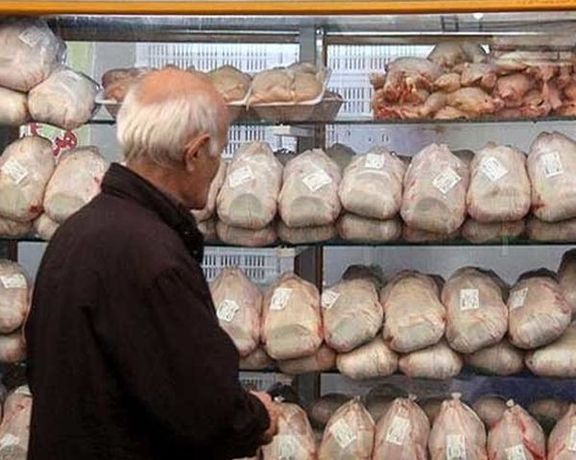
Amid reports about a sharp increase in food prices in Iran, officials say that over the past year demand for red meat has decreased by 50 percent.
Head of the Meat and Protein Industry Association of Iran, Masoud Rasouli told ILNA news website Sunday that "Compared to the last Iranian year [Ending in March 20, 2022], the demand for red meat has decreased by 50 percent while the demand for poultry also experienced a 30 percent fall."
Iran's currency rial on Sunday dropped to an all-time low of 490,000 to the US dollar.
Regarding fish, he said most is exported because of the drop in the value of national currency making exports more profitable, and little domestic demand for it.
Rasouli further noted that some of the meat production units in Iran have shut down, adding that "out of 700 meat packing companies, only 120 are active and 20% of them have closed down last year."
Iranian media report that the price of boneless mutton has reached 5,000,000 rials or 11 dollars per kilogram. Compared with the minimum monthly salary of 42,000,000 rials which is nearly $87 in today’s exchange rates, workers cannot afford any meat.
In recent years, various reports have been published about the increase in the price of all kinds of meat, and the decrease in the consumption of high-protein foods in Iran.
In this situation, the government of Ebrahim Raisi has promised to deliver meat and chicken to the people at an "approved price", but the government has made many similar promises in the past.
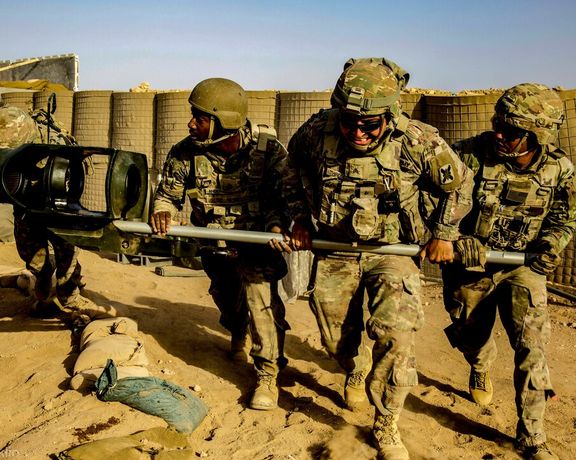
The US military's Central Command says a rocket attack has targeted coalition forces at the Green Village base in northeast Syria.
CENTCOM said in a statementSunday that no US or coalition troops were killed or wounded when two rockets hit the base, adding that there was no damage to the coalition infrastructure or equipment.
According to the statement, US forces are investigating the incident, but there are no claims of responsibility yet.
The Islamic Republic and its proxy militia groups that provide military support to Bashar al-Assad's regime in Syria are known for targeting US bases in Iraq and Syria.
Such attacks reached a crescendo in December 2019, before the United States decided to take out the commander of Iran’s extraterritorial Quds Force, Qasem Soleimani.
On January 3, 2020, the US military, on the order of President Donald Trump, killed Soleimani in a drone strike near Baghdad International Airport, saying that he had been "actively developing plans to attack American diplomats and service members in Iraq and throughout the region."
Several hundred American soldiers are stationed in the north and east of Syria as part of the international coalition against ISIS.
In recent years, the coalition bases have been sporadically targeted by rockets or drones.
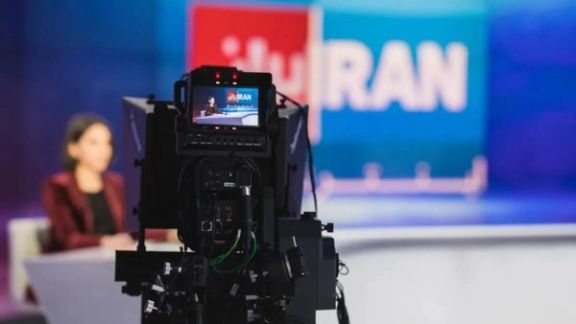
The announcement by Iran International TV that about shifting studio operations to Washington DC over Islamic Republic’s threats have solicited worldwide reactions.
After a significant escalation in state-backed threats from Iran and advice from the Metropolitan Police, Iran International TV announced February 18 that it has reluctantly closed its London studios and moved broadcasting to Washington DC.
The head of Counter Terrorism Policing (CTP), Assistant Commissioner Matt Jukes in London confirmed that they will continue to work closely with intelligence partners and others to investigate potential threats projected from Iran against a number of UK-based individuals, support those affected and put in place measures to keep them safe, including protective security measures such as an overt armed policing presence focused around the west London offices of the Persian-language media company.
“At its sharpest, this has involved police and MI5 working together to foil 15 plots since the start of 2022 to either kidnap or even kill British or UK-based individuals perceived as enemies of the regime,” read the statement.
Jukes added that in light of the ongoing investigation that follows the arrest of a man last weekend in that area, and despite extraordinary security measures, “we still have serious concerns for the safety of people working at this company,” referring to the arrest and charging of Austrian national Magomed-Husejn Dovtaev, 30, with allegedly “collecting information of a kind likely to be useful to a person committing or preparing an act of terrorism” at London’s Chiswick Business Park, home to the offices of Volant Media UK Ltd., the owner of Iran International.
“This news may also be of concern to members of the wider Iranian diaspora in the UK. If anyone has concerns over their own safety or the safety of somebody else, then they should contact their local police force,” the statement added.
But there were also some questions about why Britain would advise a media outlet to move out of London because of threats by a rogue state and if the move means giving in to threats. A former US State Department advisor, Gabriel Noronha tweeted: What on earth is “freedom of the press” good for if UK authorities won’t protect their own journalists from hostile states? This is the BASIC duty of a government!
The story has been widely covered by many media outlets, including The Sunday Times, Sky News, The Guardian, Daily Telegraph, Evening Standard, and LBC London radio, as well as several German and French papers and new websites.
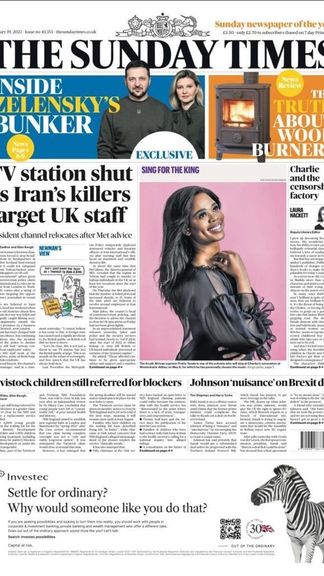
In an interview with BBC after the decision to move broadcasting to Washington, Mahmood Enayat, General Manager of Iran International TV, said, “I cannot believe it has come to this. A foreign state has caused such a significant threat to the British public on British soil that we have to move. Let’s be clear this is not just a threat to our TV station but the British Public at large. Even more this is an assault on the values of sovereignty, security and free speech that the UK has always held dear... We refuse to be silenced by these cowardly threats. We will continue to broadcast. We are undeterred.”
Iran International was warned by authorities in November that its journalists were under threat from Iranian agents and the Metropolitan Police took measures to strengthen security around the network’s office in the area.
The channel's broadcasts have gained special significance since popular anti-regime protests have swept Iran since September after the death of Mahsa Amini detained by the country’s "hijab police.” Iranian officials have repeatedly threatened Iran International and other Persian broadcasters based abroad since the start of protests when the government blocked the Internet to deny the population news and information. Iran’s Intelligence Ministry describes the channel as a “terrorist organization.”
“Its operatives and affiliates will be pursued by the Ministry of Intelligence,” Intelligence Minister Esmail Khatib said in November. “And from now on, any kind of connection with this terrorist organization will be considered to be tantamount to entering into terrorism and a threat to the national security of the Islamic Republic of Iran.”
In the same month, the broadcaster said the Metropolitan Police warned that two of its British-Iranian journalists faced threats from Iran that “represent an imminent, credible and significant risk to their lives and those of their families.”
Amid repeated threats by the Islamic Republic against Iran International’s reporters, the UK government vowed in December to step up protection of London-based Iranian journalists.
British Foreign Minister James Cleverly had vowed during a session in Parliament on December 13 that the Foreign and Commonwealth Development Office (FCDO), in partnership with the Home Office, had ensured that the Iranian journalists were protected by the British police.
“The UK remains absolutely determined to ensure that Iran does not intimidate people within this country. We will always stand up to the aggression from foreign nations,” he noted, adding, “We will absolutely not tolerate threats, particularly towards journalists who are highlighting what is going on in Iran, or indeed any other individual living in the UK.”
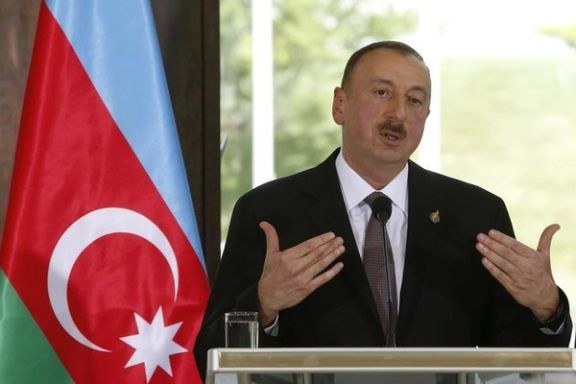
President of Azerbaijan Republic says entities related to the Iranian government were involved in the armed attack on the country's embassy in Tehran last month.
Speaking to reporters on the sidelines of the Munich Security Conference on Saturday, Ilham Aliyev said “normalization of relations with Iran depends on a transparent investigation that will bring the perpetrators (of the attack) to justice."
In an armed attack by an Iranian citizen on the embassy of the Republic of Azerbaijan on January 27, the head of the embassy's security was killed, and two other security staff were injured.
A day later, Baku evacuated its diplomatic staff and their families from the country and then suspended the activity of its embassy in Tehran. However, the relations between the two countries have not been interrupted and the Iranian embassy in Baku continues to work.
In his first criticism, Ilham Aliyev said the police's lack of swift action to stop the gunman and the fact that the state television interviewed the assailant immediately after his arrest showed he was sent "by some organizations of the Iranian regime."
The Islamic Republic says it has arrested the attacker, but it avoids “getting into a rush” in the case.
Tehran claims the gunman appeared to have had a personal, not a political, motive, but the Republic of Azerbaijan insists there is enough proof for this attack to be considered a terrorist act.